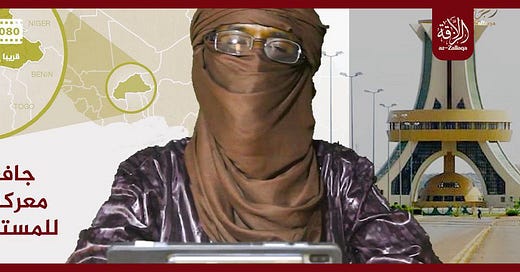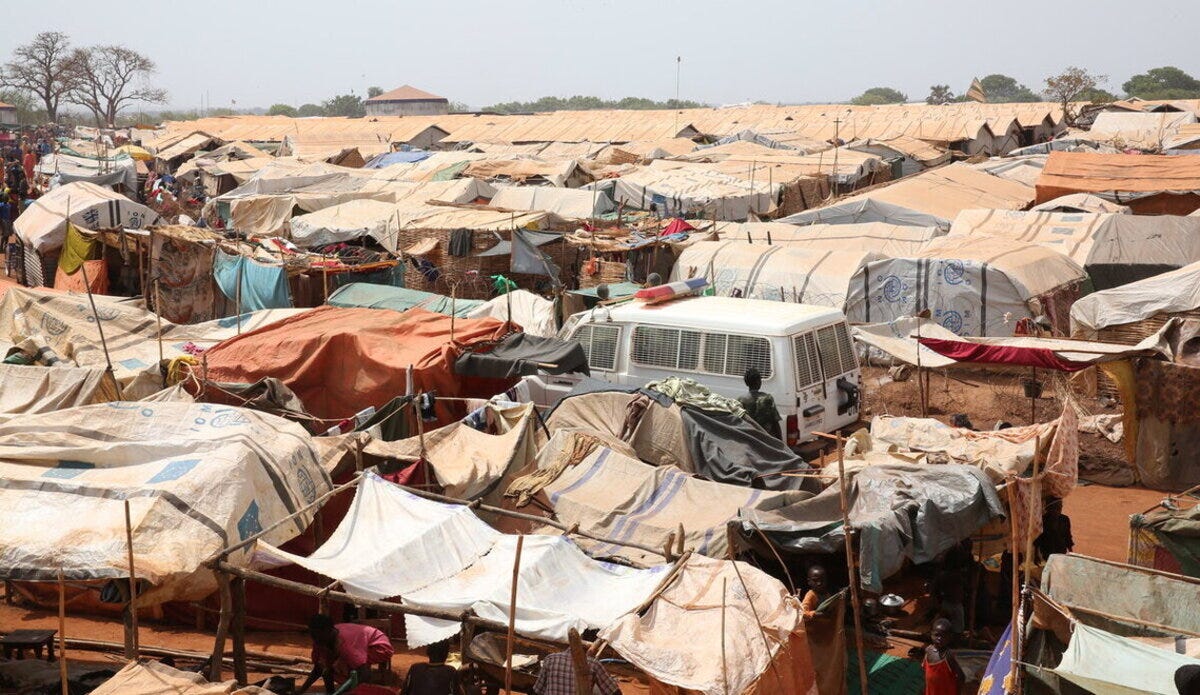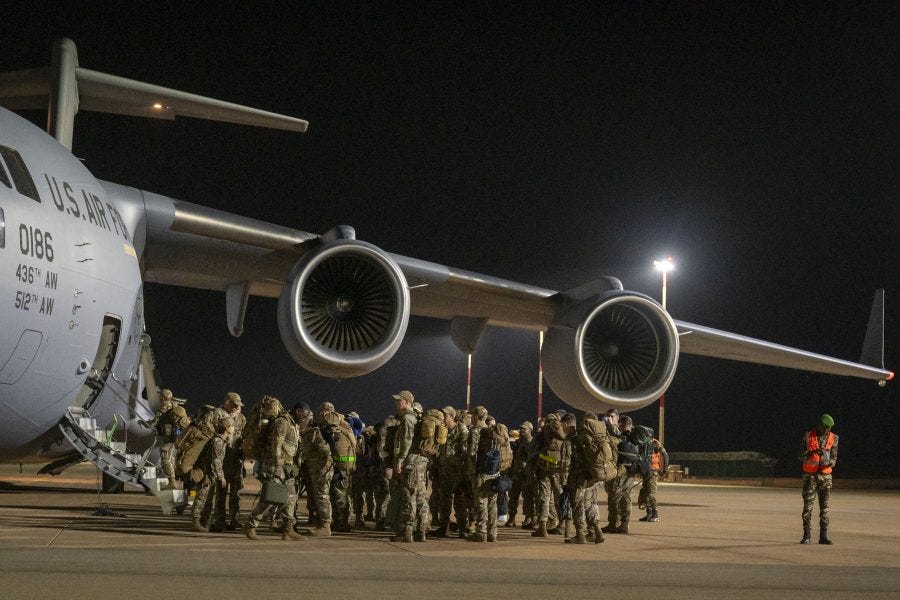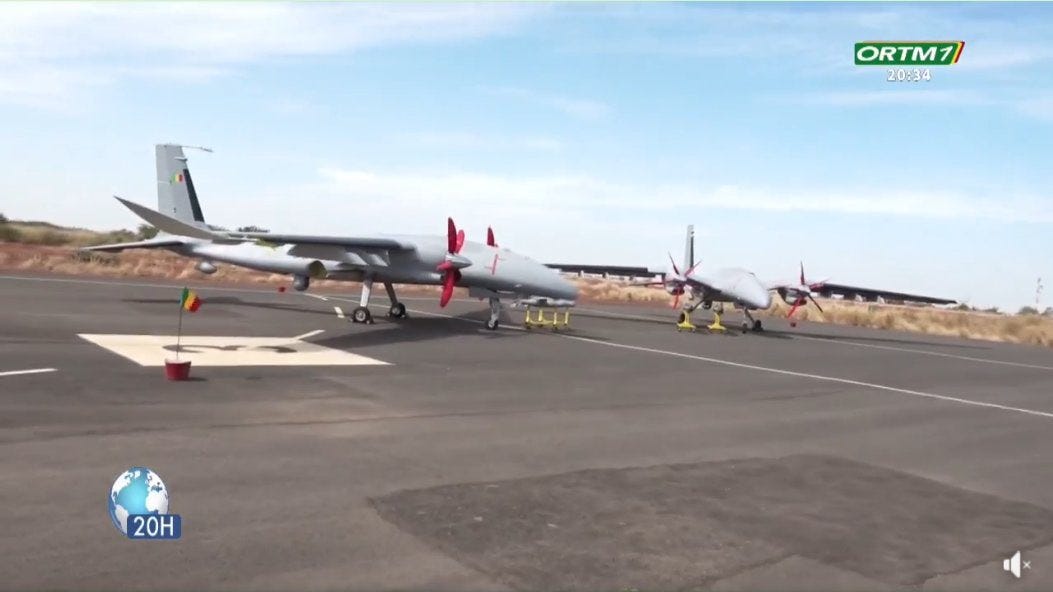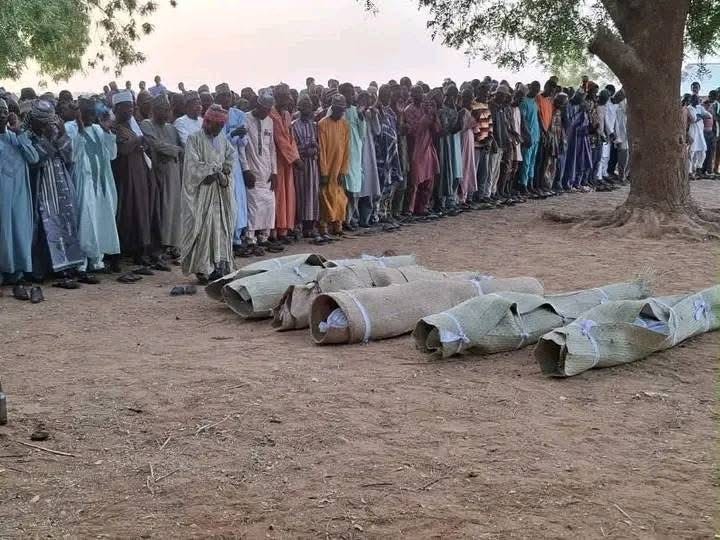Mounting Pressure Leads to Further Divisions in South Sudan
The latest chapter in South Sudan’s age-old political struggle is developing into a protracted saga. Weeks of mounting hostilities between President Salva Kiir and Riek Machar, his First Vice President, have been pushing the world’s youngest country closer toward the brink of another civil war.
Machar’s recent arrest by forces loyal to Kiir has added a fresh twist to this tale, which may prove to be pivotal in the outcome of the perennial battle between the two rivals.
Over the past several days, Machar’s detention has exposed fissures within his party - Sudan People's Liberation Movement - In Opposition (SPLM-IO) - between members in hiding and those who have remained in the capital Juba.
On 7 April, SPLM-IO Deputy Chairman Oyet Nathaniel announced the suspension of four high-ranking party members - Stephen Par Kuol, Agok Makur Kur, Ding Lam, and Luke Thompson Thoan - and accused them of working with the Kiir administration to depose Machar.
Stephen Par Kuol, Minister of Peacebuilding, has rejected the claims, stating that Deputy Chairman Oyet has no authority to make such decisions and that he and others have abandoned Machar while he is under house arrest.
These latest developments are reminiscent of divisions that led to a split in the SPLM-IO when South Sudan was in the midst of its deadly civil war. In 2016, the SPLM-IO’s chief negotiator, Taban Deng Gai, moved against Machar and was appointed by Kiir as First Vice President. Taban’s actions effectively collapsed a peace deal agreed to the year before, leading violence to not only persist for several more years, but also spread with a fresh intensity to new parts of the country.
The severity of the SPLM-IO’s current split remains unclear, but it is apparent that the party is starting to buckle under the pressure of Kiir’s attempts to secure his power.
As the crisis continues to unfold, the United Nations Mission in South Sudan is conducting round-the-clock patrols of a displacement camp next to its peacekeeping base, as the prospect of widespread violence remains.
Qatar Plays Peacemaker as Middle Powers Increase Influence in Africa
Last week, it was reported that the Congolese government would be holding direct talks with the M23 rebel group for the first time in Qatar on 9 April. It has since transpired that the two warring parties have already held initial discussions in recent days, marking a significant milestone in this years-long conflict.
Qatar also played a key role in facilitating an unprecedented summit between Congolese President Felix Tshisekedi and Rwandan President Paul Kagame several weeks ago, in what was the first time the pair had met since M23 - heavily sponsored by Rwanda - had seized two of the eastern DRC’s largest cities.
Qatar’s attempts to help bring an end to the conflict in the eastern DRC are yet another example of the increasingly prominent role ‘middle powers’ are playing on the continent, much of which has undergone a significant geopolitical realignment.
This profound evolution has been driven by a multitude of complex and often interconnected factors, resulting in new political realities. The footprints of states that once held a long-standing influence in Africa - such as Great Britain, France, and the US - have dwindled significantly. States like Turkey, Saudi Arabia, Qatar, and the UAE, among others, have moved in to exploit the ensuing vacuum.
Ranging from positive outcomes to exacerbated challenges, the result of these shifting dynamics has been varied. African governments are now presented with a broader array of partners, many of whom do not impose the same stipulations Western powers did to receive their support.
However, while schools, hospitals, and vital pieces of infrastructure have been built, weapons and military equipment have also flooded into the region, contributing to rising levels of violence and conflict.
Indeed, as Qatar mediates talks between the DRC’s warring parties, the UAE continues to fuel one of the world’s deadliest conflicts by sponsoring the Rapid Support Forces (RSF), a brutal paramilitary outfit.
The role of Qatar and the UAE in the Sudanese and Congolese conflicts encapsulates the diverse impact middle powers will continue to have on the trajectory of the continent in an increasingly multipolar international system.
Hundreds Dead in Burkina Faso as JNIM Pledges This is Only the Beginning
Levels of violence in Burkina Faso have been rapidly escalating for some time now, but the bloodshed currently being witnessed in the country is as remarkable as it is alarming.
On 3 April, Jama’at Nusrat al-Islam wal-Muslimin (JNIM) fighters reportedly attacked the villages of Di, Guiedougou, and Lanfiera in the western province of Sourou, leaving behind a devastating scene.
As many as 200 people were killed in the attack. An overwhelming majority of the victims were men who had reportedly recently joined, or were planning to join, the notorious civilian auxiliary force, Volunteers for the Defence of the Homeland (VDP).
The villages were among several in Sourou that had made national headlines just weeks prior. Throughout March and early April, the Burkinabè military and the VDP had conducted a large-scale operation to push JNIM out of Sourou Valley.
The operation was characterised as a major success, with the government claiming to have freed thousands of civilians who had long been living under JNIM control.
The Burkinabè news outlet RTB recently interviewed several young men from the Sourou Valley, who expressed their desire to enlist with the VDP. However, JNIM’s brutal attack on 3 April likely claimed the lives of many of them before they could fully join.
The massacres in Sourou valley come as part of a promise by JNIM to avenge scores of Fulani civilians killed by VDP around the nearby city of Solenzo.
This campaign of retribution has seen the group conduct dozens of attacks against the military and the VDP over the past several weeks. Among the most notable of which came in Diapaga on 29 March, which may have left as many as 100 security personnel dead.
The two attacks in quick succession are among the deadliest in the region so far this year; they have underscored the government’s inability to fully secure vast swathes of its territory, while simultaneously demonstrated JNIM’s growing strength.
In a public release on 8 April, JNIM declared that the attack in Diapaga was "the beginning of revenge for Solenzo,” allowing it to continue framing future attacks as attempts to protect persecuted civilians.
A spokesperson for the group also thanked Human Rights Watch and international media outlets for their coverage of the atrocities - coming as part of its broader strategy to gain external legitimacy and reduce support for the Sahel’s military governments.
The increasing tempo and growing intensity of attacks in Burkina Faso and the wider Sahel - perpetrated by both terrorists and government forces - suggest that years of mounting violence may soon hit an inflection point that fundamentally alters the region’s political landscape.
AES Confronted by Major Test of Its Solidarity
Since the beginning of the year, the nascent Alliance of the Sahel States (AES) has consolidated its partnership while further separating itself from the wider West African community - officially leaving ECOWAS, unveiling new passports, and announcing the formation of a new security task force.
Predictably, Russia is emerging as a key partner of the AES, with its deepening ties to the confederation further evidenced by the visit of the Malian, Burkinabè, and Nigerien foreign ministers to Moscow on 3-4 April.
At the summit, the three foreign ministers announced that plans are underway to form a joint combat force to tackle terrorist groups in the region, with the Russian government underscoring its willingness “to actively assist in building the capacity of the joint forces of the Sahel states.”
Russian Foreign Minister Sergei Lavrov also announced his desire for relations between the AES and ECOWAS to be repaired, implying that facilitating this process is among the Kremlin’s top geo-strategic priorities in Africa.
Critical Threats noted on 3 April that AES is serving as a vehicle for Russia to not only bolster its position in the Sahel, but also further its influence in West Africa and expand the scope of interests through the wider region at the expense of the West.
The AES has also allowed Mali, Burkina Faso, and Niger to consolidate and strengthen their positions and influence, both regionally and internationally, claims the Malian foreign minister.
The eruption of a major diplomatic fallout between Mali and Algeria over the past several days has quickly put this claim to the test. In the early hours of 1 April, the Algerian military downed a Malian Bayraktar Akinci drone, claiming the aircraft had flown approximately two km into its territory and conducted hostile manoeuvres.
After Mali initially confirmed it had lost a drone in the area, without stating a cause or perpetrator, the AES released a strong statement several days later, reporting it considers the event “to be an aggression targeting all member states” and accusing Algeria of cooperating with terrorists.
This statement led Algeria to announce the closure of its airspace to aircraft travelling to and from Mali, prompting the Malian government to enact reciprocal measures. Despite their words of solidarity, Burkina Faso and Niger have yet to follow Mali and implement the same sanctions on Algiers.
Now confronted with one of AES’ first real tests of unity, the next moves of the Burkinabe and Nigerien governments will give a clearer indication of the strength of the newly-formed AES and how it will act as together in the face of future crises.
Nigeria’s Diverse Security Threats
Plateau State, the self-proclaimed "Home of Peace and Tourism", has been plagued by unending violence over the past several decades. Since 2010, conflict between Muslim Fulani semi-nomadic herders and predominantly Christian farmers has led to the deaths of at least 15,000 people.
Intercommunal tensions in Plateau erupted into violence once again on 2 April, when armed men, identified as Fulani by eyewitnesses, attacked several villages in Bokkos local government area (LGA) and killed around 50 people.
Managing the enduring conflict in Plateau is one of the many security challenges currently confronting the federal government. The now well-known militant group, Lakurawa, recently labelled by United Nations Institute for Disarmament Research as Nigeria’s “newest threat”, launched yet another attack over the past week.
On 6 April, Lakurawa terrorists ambushed a group of local vigilantes in Augie Local Government Area, Kebbi State, killing 13 men. Several months ago, the senator for Kebbi Central District warned that the militant group was operating across the state with relative impunity.
Alongside Kebbi, the Islamic State linked group is also believed to be active in other parts of northwest Nigeria - such as Sokoto, Katsina, and Zamfara - which for years have been grappling with high levels of violence and insecurity perpetrated by bandit groups.
In October last year, ‘Operation Fasan Yamma’ (salvage the west) was launched by the federal government to tackle banditry in northwestern Nigeria. Elders in the region have reported that the operation has produced tangible results, with kidnappings and attacks in many villages reducing and travel along major roadways becoming less perilous.
However, the recent Lakurawa attack in Kebbi was swiftly followed by a bandit raid in Dandume LGA, Katsina State, which left four people dead and over 50 kidnapped.
The recent attacks have occurred against the backdrop of mounting Islamic State (ISWAP) violence in the country’s northeast, which has seen the terrorist group launch a wave of devastating assaukts against the military. Over the past week, ISWAP has conducted seven more attacks, including two on forward operating bases.
The geographical dispersal of violence across Nigeria over the past week reflects the severity of the challenges confronting federal and state authorities, many of which appear to be growing in terms of their severity.

